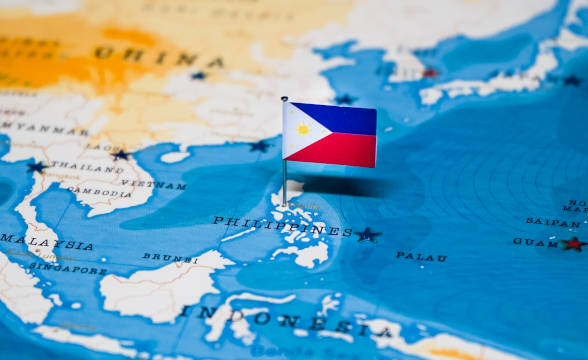The state of the gambling industry has been rather poor in the Philippines, with multiple instances of kidnappings, corruption, and accusations of abuse of power. However, the Philippine National Police seems to be vigilant and its cooperation with multiple government bodies in fighting Philippine Offshore Gaming Operators are evidence that there are still functioning constructs in the country, and there is still hope for improvement. This might require some sacrifices, though, as complete reforms are rarely smooth and trouble-free.
Philippine Police Cracking Down on POGOs
The Philippine National Police (PNP) said on Tuesday that a crackdown on Philippine Offshore Gaming Operators (POGOs) and their illegal activities is underway, with a heavy focus being placed on POGO workers and their documentation – expired visas and/or working permits, with many cases of workers lacking any documentation making the crackdown a necessity. PNP chief Gen. Rodolfo Azurin Jr. was cited in the Philippine government’s website as saying
“With the crackdown, what we are doing with undocumented, overstaying, expired visa or working permits of POGO workers, it will soon give our country a better business climate since part of the requirement for foreign workers are clearances that they are not wanted or facing any criminal charges in their country, and that they will be required to obtain National Police Clearances and NBI clearances” to the Philippine News Agency.
According to the news release in the government’s website, the Bureau of Immigration (BI) and Philippine Amusement and Gaming Corporation (PAGCOR) have also been contacted, in attempt to enhance the investigative process in this crackdown against POGOs. As per Azurin’s own words, these types of cooperation would increase the capacity for on-the-spot checks, aiming to verify whether a person is complying with local operational laws.
Reforms Sorely Needed
This crackdown is possibly a part of the PNP’s plan to overhaul its policies regarding the entry of foreign workers in POGOs. Azurin made an appeal last Friday, September 16, saying that:
It is high time that we reassess, we reevaluate our policies on POGO employees entering the country. This is why we require that they should be given a national police clearance so we have a means to check who these Chinese nationals are and at the same time, we ensure that those entering the country are not criminals.”
PNP chief Gen. Rodolfo Azurin Jr.
Giving out this clearance would most likely include making a list of foreign POGO workers. All efforts aim at first reducing, but eventually – stopping – POGO-related crimes, which would require a great degree of legislative reforms and granting the PNP the ability to properly oversee and enforce the better-defined laws.
Just a couple of days ago, the results of a clearly structured and purposeful collaboration between the Philippine regulator PAGCOR, the PNP, and the Department of Interior and Local Government were made obvious. This was another attack against illegality within the country’s gaming industry and resulted in rescuing more than a hundred employees, following the shutting down of two POGOs. Commenting the situation, PAGCOR’s chief also warned that the industry climate sorely needs a clean-up.
Even more worrisome for the industry is the almost unavoidable possibility of completely shutting down online gambling in the Philippines as a new bill was introduced yesterday, named the Anti-Online Gambling Act. E-sabong was also completely banned, making placing bets on cockfights online illegal. While the Anti-Online Gambling Act isn’t officially passed yet, the state of POGO-related crime certainly has extremely damaging social effects, which is the main consideration for banning online gambling in the first place.


